Students Attend Energy That Works Field Trip at FREEDM Systems Center
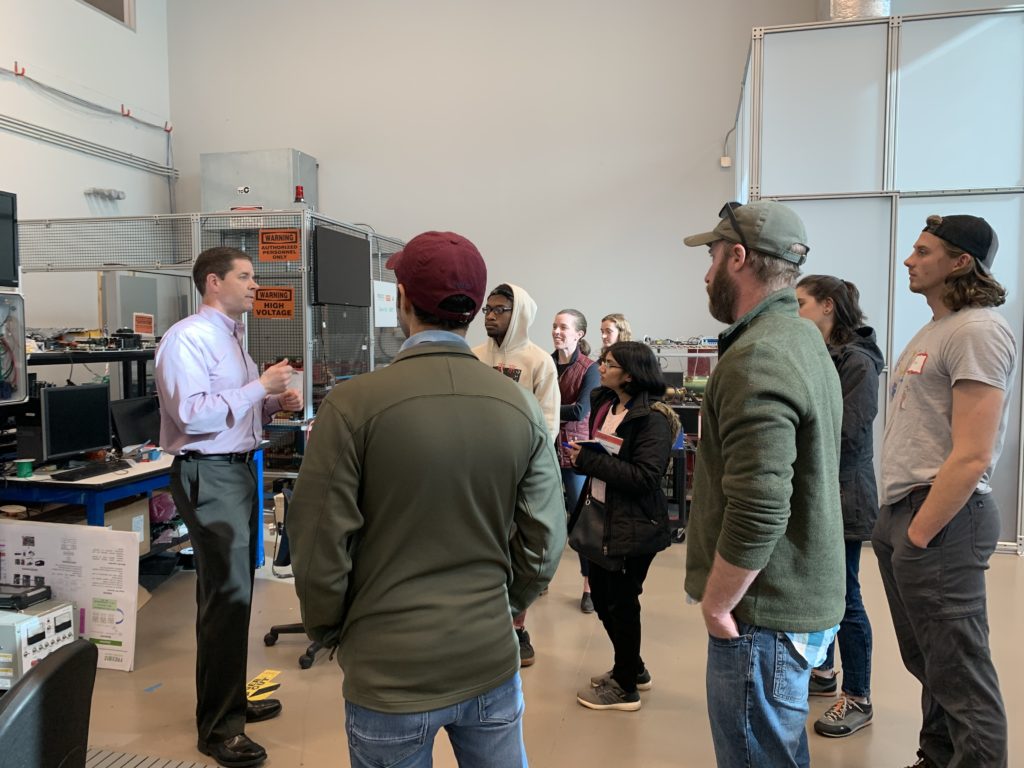
NC State students from several different majors and backgrounds took a field trip to FREEDM Systems Center on Centennial Campus as a part of the first Energy That Works series instituted by the NC Clean Energy Technology Center (NCCETC).
FREEDM, an engineering research center at NC State, focuses on distributed renewable energy integration through innovations in power electronics and power systems.
Ken Dulaney, Director of Industry and Innovation at NC State, led the presentation and tour at the FREEDM Center, leading students throughout the building and even the parking lot to show the Center’s various workspaces and electric vehicle chargers. Students learned about FREEDM’s goals to modernize the electric grid and encourage the use of sustainable energy in the US.
“We chose the FREEDM Center because they are a great partner on campus that is doing research that impacts our electricity system today,” said Allison Carr, Clean Transportation Specialist at NCCETC and leader of the Energy That Works project. “Students may have heard of the FREEDM Center but know little about the work that they do. One of our main goals is to explore our energy systems in North Carolina, including work being done on NC State’s campus.”
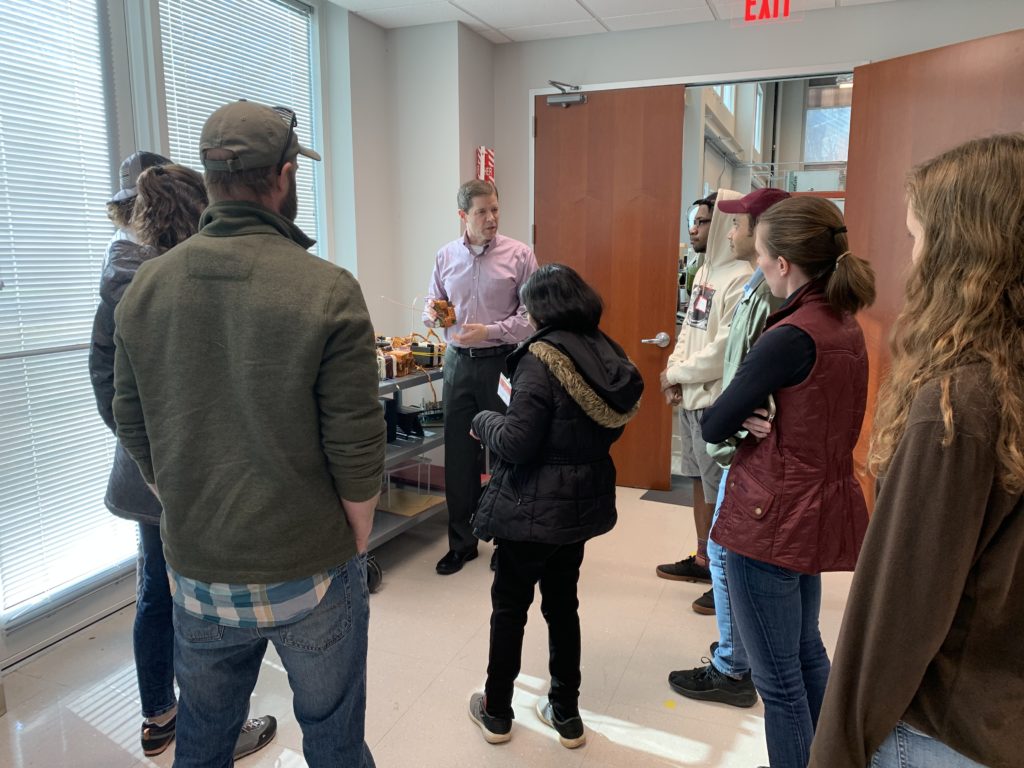
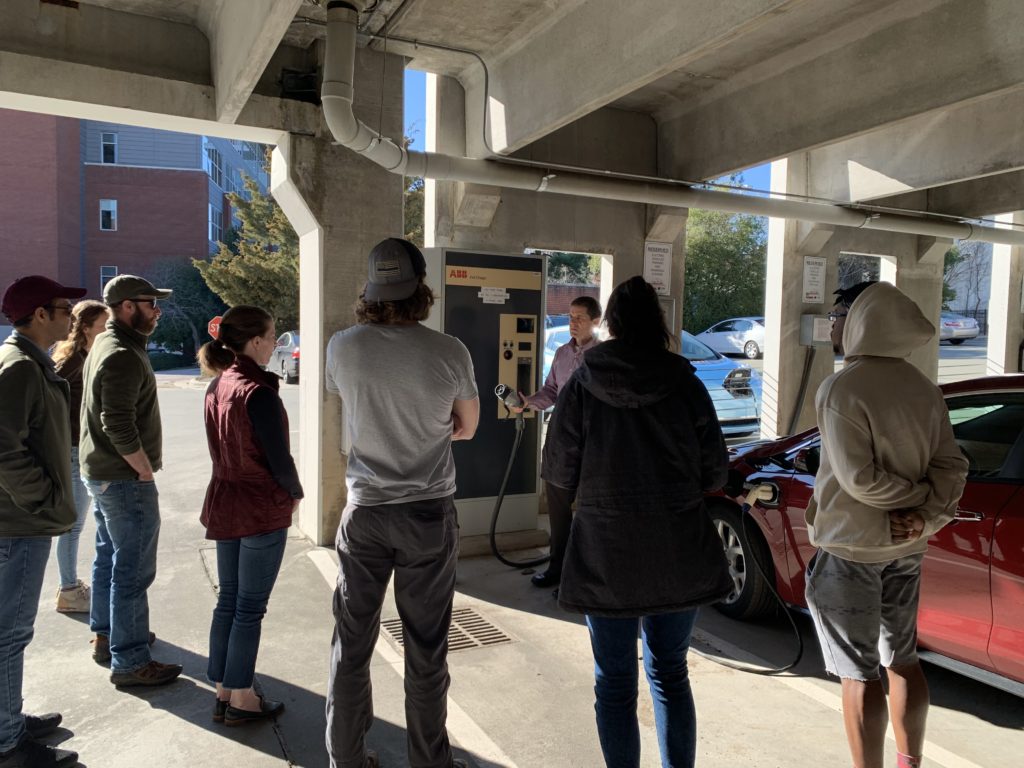
Poorva Mokashi, Environmental Engineering major at NC State, said she wanted to attend the field trip to learn more about renewable energy research at NC State. On the tour, she said she learned about grid stability and how distributed sources affect it. She found that being able to stimulate electric loads by Real Time Digital Simulator (RTDS) to be the most interesting point on the tour.
“I think energy has huge implications on our carbon footprint, and so we should have a better understanding of it,” Mokashi said.
Najim Alshahrani said he learned the practical challenges facing the electric power industry as renewable energy sources emerge, and how future distribution systems would look when photovoltaics (PVs) outnumber conventional energy sources.
“I’m a graduate student in Electric Power Systems, so being aware of current research activities is a must,” Alshahrani said. “Energy is a necessity like water and food. Unfortunately, energy doesn’t have a natural reproduction cycle which makes a real sustainability challenge. New solutions will contribute greatly to human advancement.”
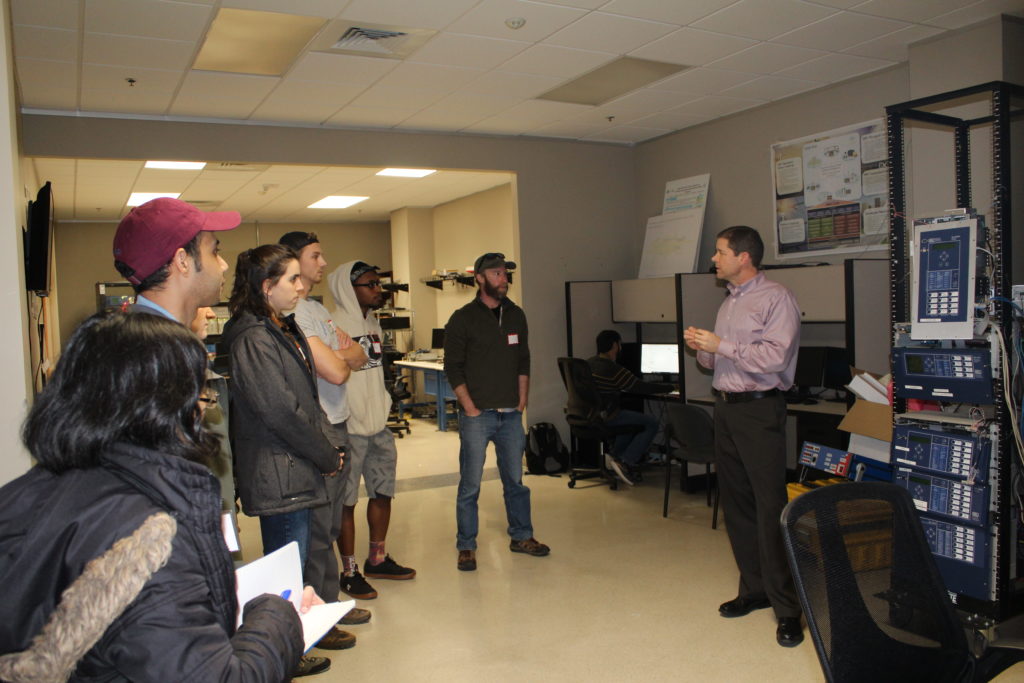
“The tour of the FREEDM Center was a great first experience,” Carr said. “It provided insight into how ongoing research on our electricity grid can support a better functioning energy system. We learned about research into devices and systems that can help integrate renewable energy and support battery storage systems. A safer, smarter, and more reliable grid will be even more important in the future as we become even more dependent on our smartphones, electric cars, and smart devices in our home.”
NCCETC’s new Energy That Works Series – a project created and proposed for the North Carolina State University Sustainability Fund to generate new connections and learning at NC State University – was accepted last year and awarded $10,716. The project includes a Field Trip Series, Renewable Energy Training Program, a student internship opportunity at NCCETC, and a creation of planning group meetings comprised of students, faculty and staff to support planning and outreach. The project’s goal is to facilitate meaningful dialogue across disciplines about the importance of clean energy and its role in creating a sustainable future, and increase coordination among energy efforts at NC State University.
The series of field trips across the state is offered to provide opportunities for students to experience the complex challenges of energy and technology firsthand.
“It’s an opportunity for students to see actual generation sites – whether a Combined Heat and Power (CHP) plant, or biomass facility,” Carr said. “You learn about it in class, but this lets you see things in person and behind the scenes.”
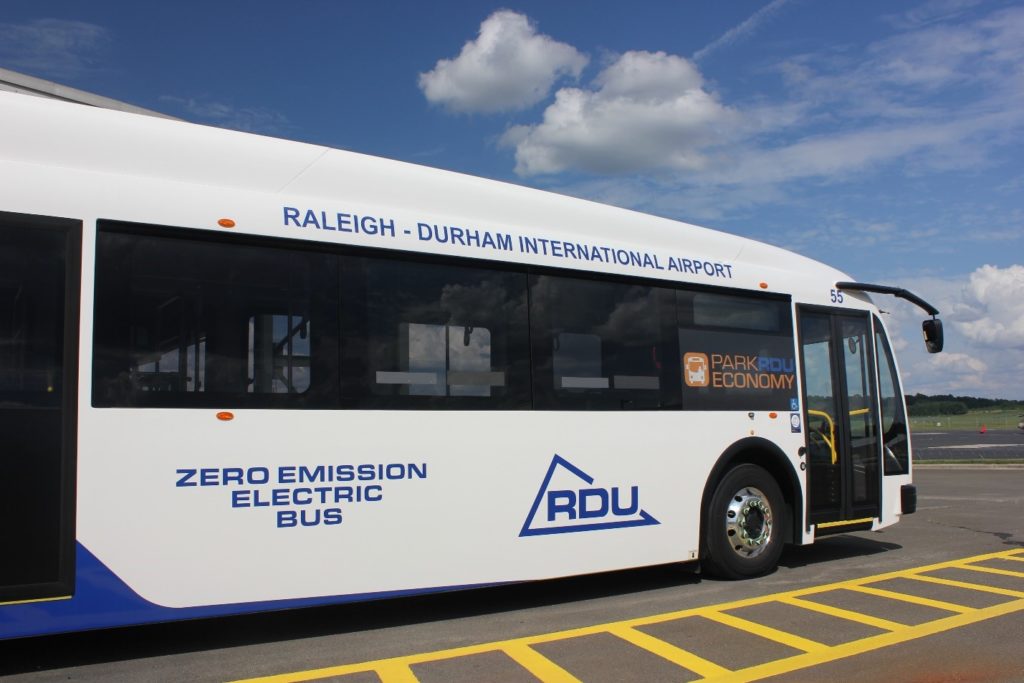
The next Energy That Works field trip will be at Raleigh-Durham International Airport (RDU), where students will get a chance to learn about the airport’s use of electric buses. RDU has been operating four electric buses for several months and has already committed to buying four more. The trip will be this Friday, February 28 from 10 a.m. to 12 p.m. Transportation from the NC Clean Energy Technology Center will be provided. Learn more here.
This spring, NCCETC is also offering a discounted REPV: Fundamentals of PV Design and Installation training course to 20 students, covering the process of designing and installing photovoltaic systems, from March 9-13 at NC State. The first four days will be classroom-oriented, and on the final day, students will learn how to install a PV system during a hands-on workshop.
“The solar spring break training will offer students the opportunity to do professional training that can give them insight into future careers in solar energy development and installation,” Carr said.
The course fee is $100 for NCSU students, which includes a 40 hour REPV course, daily lunch, and online course packet. Successfully completing this 40-hour REPV course qualifies you to sit for the optional NABCEP PV Associate Exam. There will be an additional fee of $150 for the exam. Register to attend by March 4.
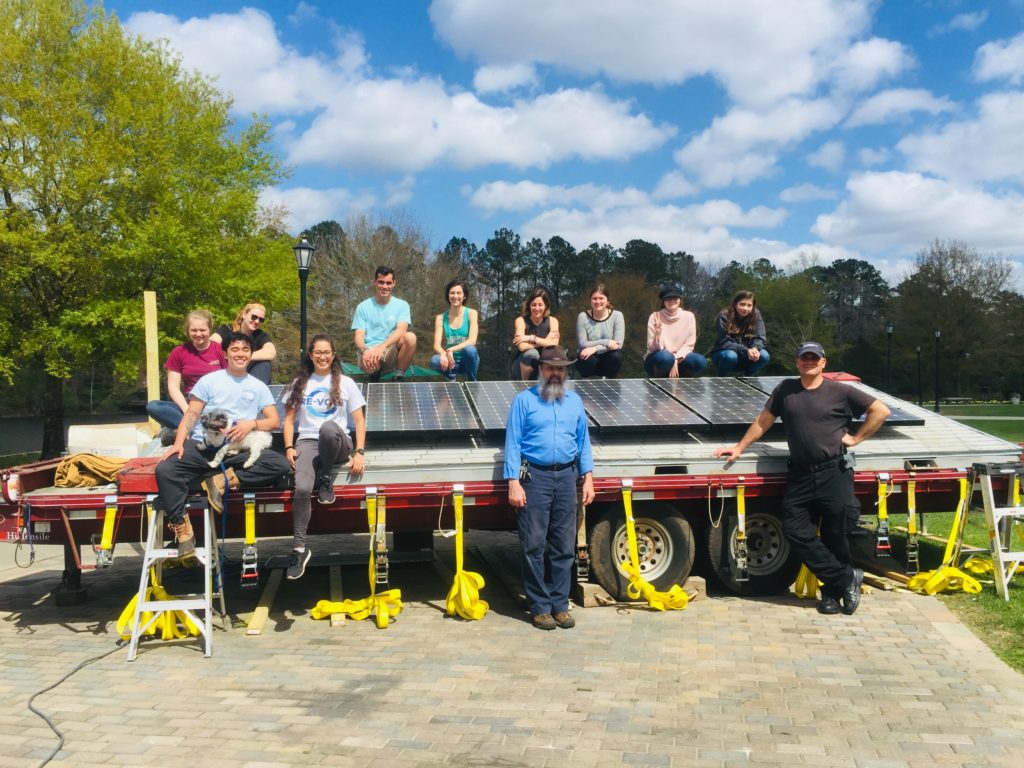
Are you a company or individual interested in sharing your work in the energy industry? Energy That Works is looking for a new partnership and opportunities to connect students with you. Contact Allison Carr at akcarr@ncsu.edu if you have a lab or site where college students can experience aspects of the energy systems.
“Students are eager to learn about potential careers in the energy industry,” Carr said.
Learn more about the Energy That Works series here, and stay tuned for updates on the series at www.nccleantech.ncsu.edu.